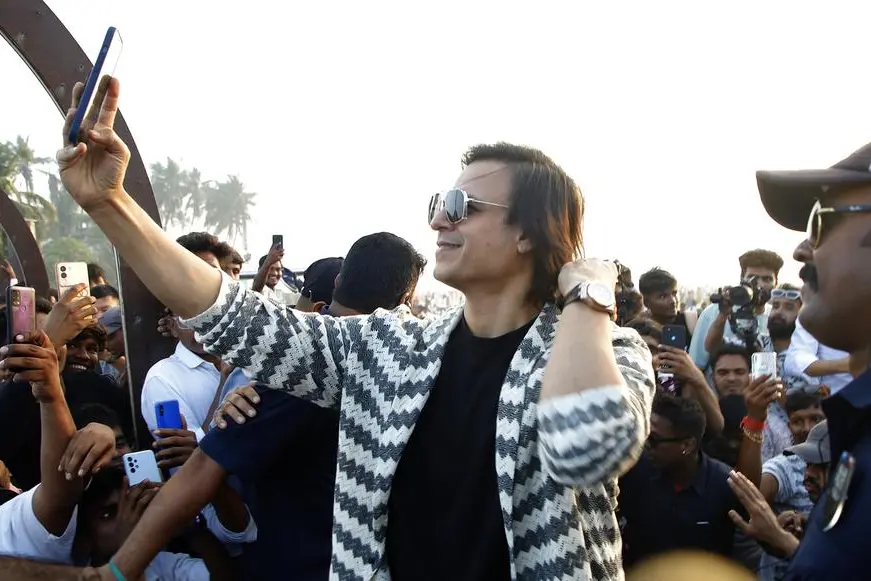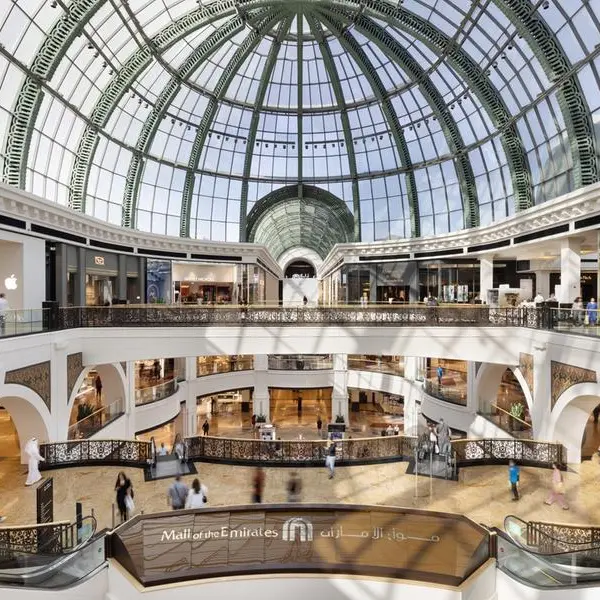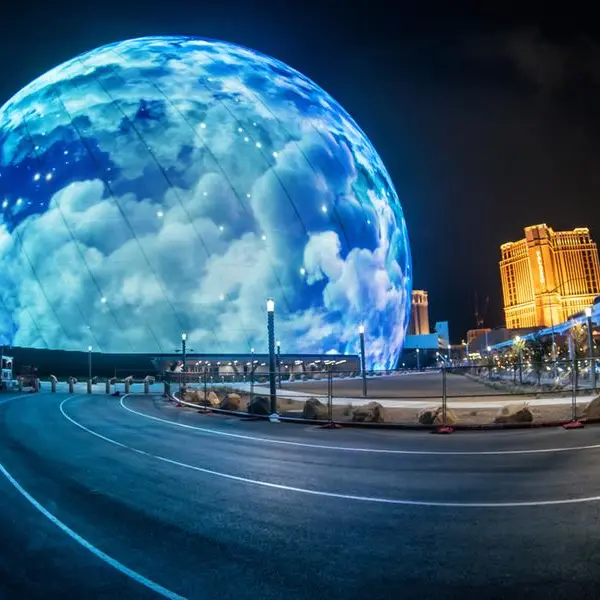PHOTO
From his memorable debut in Company to his versatile roles in Saathiya and Shootout at Lokhandwala, Vivek Oberoi has etched his name in the annals of Hindi cinema with a sudden rise to fame in the early 2000s. However, beyond the glitz and glamour of the silver screen, Oberoi embodies a multifaceted persona — an astute entrepreneur, a philanthropist, and a devoted family man. In a conversation with City Times, the actor delves into the depths of his Bollywood career, his determination to make it on his own, and his relocation to Dubai, which led to the launch of many businesses—the latest one being his flagship jewellery store, Solitario, in the heart of the bustling city.
Edited excerpts from an interview:
Q. Your father Suresh Oberoi is also an acclaimed actor. Was it always a given fact that you would get into showbiz?
My family never brought me up being entitled. We were never told that ‘yeh baap dada ki jagir hai, isko le chalo’ (here’s an estate passed on from your father and grandfather, you get to take it forward). I remember my father decided that he was going to launch me in a film project and I had a crisis of conscience on that. I actually opted out of the film. I dropped my last name so I wouldn't embarrass my father, struggled for 18 months, went door-to-door, doing interviews, and doing auditions and finally got a chance to audition with Ram Gopal Varma.
The first time around, it didn't work out. Twelve months later, I got another chance to audition with him and Company happened. It took a lot to win that audition. I remember when I got the film, I went and told the director, "Sir, I have something to share. I'm Mr Oberoi's son.” He replied in shock, “Suresh's son? Why didn't you tell me earlier?" I told him I wanted to get the film on my own merit and he actually thumped my back with pride and said, “Great spirit. Proud of you.”
Q. Why did you want to hustle your way in?
Absolutely. There should be no easy way. That's what I tell all the young kids who come to me and ask me about how to navigate their way into the industry. You must hustle, you must go through the grind, own your failures and own your success. This is what I've always believed in.
Q. Has it become easier for newcomers to find an entry point now as opposed to back in the day?
It's much more democratic now. Today, you have access for your talent to shine across social media. Previously, you needed an opportunity; if you didn't get the opportunity on a television platform or in a film to shine, you had no growth. Now, you can be on social media, and a casting director can see you there and say, 'Oh, who is this sensation?' Now it's all about how good you are and a little bit about how lucky you are.
Q. The OTT disruption has also helped democratise the Hindi film industry, to an extent. What excites you the most about this new wave?
I just completed the OTT show Indian Police Force and God's been very kind because it’s been a huge success. I think it's my most successful OTT show in terms of eyeballs or the number of views of all time. I'm also shooting something which is an action movie with somebody I love dearly, Tiger Shroff. Simultaneously, I’m also gearing up for an action movie with one of my favourite producers, Madhu Mantena. I'm doing a historical film that I've just signed. One film that is not historical but has 20 years of history is Masti. We’re all set for its fourth edition.
Q. Why do you think we’re missing good comedies from Bollywood?
Define good. For example, my wife really dislikes Masti; it makes her cringe. But I, for one, am one of the many who adore it. There are a million people who adore it. Everyone keeps asking me, "When are you making the next one?” So our whole position is to cater to the right PG, who are you making the film for? For instance, the Indian Police Force is not meant to be edgy, gritty. It is supposed to be mass. And then, there’s the edgy content, which excites you more as an actor, such Inside Edge. So, you need to be clear on what you want from a particular project.
Q. One notable aspect of your journey is how you managed to not allow the industry dictate the terms and pace of your work, taking time with your projects. Many people, especially the Gen Zs, seem to struggle with this pressure to constantly keep up and pursue success aggressively. How did you navigate this pressure?
Pressure can apply not just in movies, but in everything you do in life. I've made these mistakes, and I've learned from them. You can get under pressure from somebody and stop listening to your inner voice. You stop listening to whatever motivated you to make that career choice in the first place and it starts becoming transactional. You kill the joy of it. The minute you do that, 50 per cent of the battle is lost. You're bound to lose your inner compass; your soul is going to start saying, "I'm lost at sea. I'm not enjoying this anymore”.
That joy that I feel when I stand in front of the camera, the joy that I feel when I'm making a character come to life—if I feel like that's a task, I'm not enjoying it anymore, I should quit. The same thing applies to whatever you do in life. You should take a break or a sabbatical, or do something totally different because if it's not feeding your soul, then what's the point? Whatever you choose to do, should feed your bank account, yes, but also feed your soul.
Q. You also moved to Dubai 3 years ago, how has your journey been in the city?
I love the city. Dubai makes me feel safe, it makes me feel welcome. It makes me feel loved. The people here give us so much respect as Indians. The kind of love we get for our culture, for our film—especially the elderly folk—they speak to me in their Arabic-Urdu, which is so sweet. They talk about my father's movies or my movies. And then there’s the diaspora. There are so many nationalities here. My son's class has 23 kids from 17 nationalities. So you get to grow as a global citizen. For business, Dubai has been super lucky for me. Our real estate company is flying right now, Solitario is doing well, and I’ll be launching my F&B Coffee Company very soon.
Q. Congrats on your recently launched store Solitario in Dubai Hills Mall. What made you want to transition from the business of silver screens to the business of diamonds?
The most interesting factor for me was that lab-grown jewellery has grown so exponentially. I love technology; I love the fact that the quality of lab-grown jewellery is becoming so incredible that today you can't distinguish it from natural stones. Not even a machine, let alone a human, can distinguish between natural and lab-grown. It’s also great for the environment, great for ethical ESG-related matters, and at the same time, fashionable and fun. So, you have the whole spectrum. Great diamonds, good karma—that was my tagline. I wrote that literally on the back of a paper and said, "This is it. This is the company”. And today, we've envisioned that and made it into reality in just two years, with our own setup and design house. It’s already in 25 cities, with Dubai being our most recent launch.
Copyright © 2022 Khaleej Times. All Rights Reserved. Provided by SyndiGate Media Inc. (Syndigate.info).





















